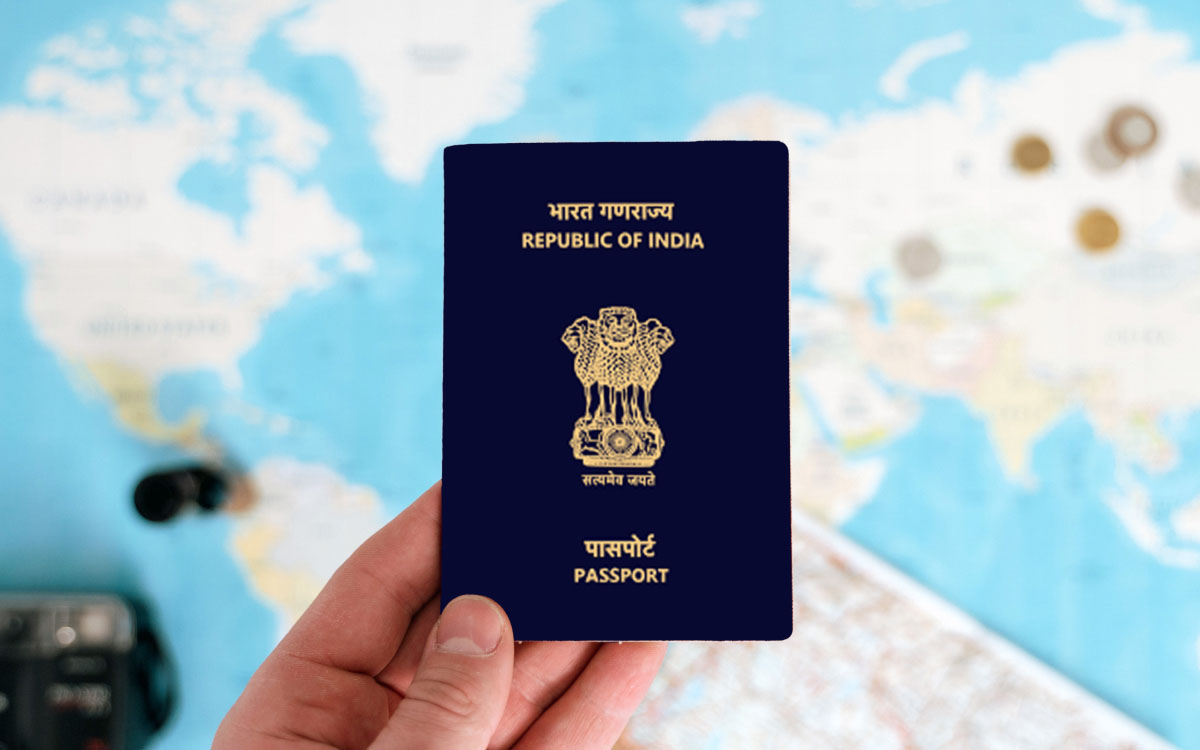Starting a business in Dominica offers a wealth of opportunities for entrepreneurs and investors seeking to tap into a growing economy. Known as the “Nature Isle of the Caribbean,” Dominica is rich in natural resources, tourism potential, and government incentives aimed at fostering business growth. This guide will take you through the key steps, legal requirements, and best practices to establish a successful business in Dominica.
Why Start a Business in Dominica?
Dominica offers a dynamic and appealing environment for entrepreneurs and investors, making it a prime location to establish and grow a business. Known for its natural beauty and eco-conscious policies, Dominica’s economy is shaped by a combination of strategic advantages and supportive government initiatives. Here are the key reasons why starting a business in Dominica is a compelling choice:
Economic Stability and Growth Opportunities
Dominica boasts a resilient and steadily growing economy. Despite global economic challenges, the island has maintained stability through strategic investments in key industries. Entrepreneurs can tap into sectors with high growth potential, such as:
- Tourism: With its unspoiled natural landscapes, Dominica is a haven for eco-tourism, wellness retreats, and adventure tourism. The government actively promotes sustainable tourism, opening doors for innovative business ideas in this sector.
- Agriculture: Dominica’s fertile lands and favorable climate make it ideal for organic farming and agro-processing. Products such as bananas, coffee, cocoa, and essential oils have strong export potential.
- Renewable Energy: As Dominica transitions to a green economy, opportunities in solar, wind, and geothermal energy are expanding, attracting both local and foreign investors.
Government Incentives and Business-Friendly Policies
The government of Dominica prioritizes business development by offering a range of incentives to reduce operational costs and encourage investment. These include:
- Tax Holidays: Businesses in certain industries, such as agriculture and manufacturing, may qualify for tax exemptions for up to 20 years.
- Duty-Free Imports: Entrepreneurs importing machinery, equipment, and raw materials for their businesses can benefit from duty-free concessions.
- Investment Promotion Schemes: Programs like the Invest Dominica Authority (IDA) support new businesses by offering guidance, streamlined processes, and access to exclusive benefits.
These incentives significantly lower entry barriers, making it easier to start and sustain a business.
International Market Access
Dominica’s membership in the Caribbean Community (CARICOM) provides businesses with preferential trade terms across the region. Through CARICOM’s Single Market and Economy (CSME), entrepreneurs can:
- Export goods and services across member states without additional tariffs.
- Access a skilled workforce from the region.
- Benefit from regional collaborations and partnerships.
Additionally, Dominica’s proximity to North and South America positions it as a strategic hub for international trade.
Choosing a Business Structure in Dominica

Selecting the right business structure is one of the most important decisions when starting a business in Dominica. Your choice will affect your legal obligations, tax responsibilities, and overall operational flexibility. Below is an overview of the main business structures available in Dominica, along with their advantages and disadvantages:
Sole Proprietorship Business in Dominica
A sole proprietorship is the simplest and most common form of business structure, ideal for individuals looking to start small-scale operations.
- Advantages:
- Easy and inexpensive to set up.
- Full control over business decisions.
- Fewer regulatory requirements compared to other structures.
- Disadvantages:
- Unlimited personal liability for business debts and obligations.
- Limited access to funding and investment opportunities.
- Business continuity depends solely on the owner.
This structure is best suited for small businesses such as retail shops, service providers, or freelancers.
Partnership Business in Dominica
A partnership is an agreement between two or more individuals to jointly operate a business and share profits, losses, and responsibilities.
- Advantages:
- Shared responsibilities, allowing partners to leverage their skills and expertise.
- Easier access to capital as partners contribute to the funding.
- Simple setup process and relatively low operational costs.
- Disadvantages:
- Unlimited liability for all partners (unless forming a limited partnership).
- Potential for conflicts between partners over business decisions.
- Profits must be shared, reducing individual earnings.
Partnerships are a good option for professionals, such as legal or consultancy firms, where collaboration is integral.
Limited Liability Company (LLC) Business in Dominica
An LLC is a more formal business structure offering limited liability protection to its owners. It is a popular choice for medium to large businesses.
- Advantages:
- Owners’ personal assets are protected from business liabilities.
- Flexibility in management and operations.
- Enhanced credibility with customers, suppliers, and investors.
- Disadvantages:
- More complex and costly to establish compared to sole proprietorships or partnerships.
- Ongoing compliance requirements, such as annual reports and tax filings.
- May require professional legal or financial advice to manage.
LLCs are ideal for businesses seeking growth, such as in tourism, manufacturing, or renewable energy sectors.
Offshore Company in Dominica
Offshore companies are established in Dominica for international trade and investment purposes, often benefiting from tax advantages and confidentiality.
- Advantages:
- Significant tax benefits, including exemptions on corporate income tax.
- High level of confidentiality for owners and shareholders.
- Access to international banking and investment opportunities.
- Disadvantages:
- Restrictions on conducting business activities within Dominica.
- Requires compliance with international regulations to avoid legal complications.
- May involve higher setup costs and administrative efforts.
This structure is suitable for international investors or businesses focusing on global trade and finance.
How to Choose the Right Business Structure in Dominica
To determine the best business structure for your needs:
- Assess Your Goals: Consider whether your priority is growth, liability protection, or simplicity.
- Evaluate Your Resources: Analyze your financial capabilities, team size, and expertise.
- Seek Professional Advice: Consult legal and financial advisors in Dominica to ensure compliance and optimal structuring.
Steps to Start a Business in Dominica
Starting a business in Dominica requires careful planning and adherence to the country’s legal and procedural requirements. Below is a detailed step-by-step guide to help entrepreneurs successfully navigate the process:
Step 1: Conduct Market Research
Before setting up your business, thorough market research is essential to understand Dominica’s economic landscape, competition, and target audience. Focus on key growth sectors such as:
- Tourism: With Dominica’s focus on eco-tourism and adventure travel, opportunities exist in hospitality, tour services, and wellness retreats.
- Agriculture: The fertile lands of Dominica are ideal for organic farming, production of essential oils, and export-oriented agricultural products.
- Renewable Energy: The government’s push for sustainability creates opportunities in solar, wind, and geothermal energy projects.
Identify your target market, evaluate demand, and consider how your business can fill existing gaps or meet emerging needs.
Step 2: Register Your Business
Registering your business is a legal requirement in Dominica. Follow these steps to complete the registration process:
- Choose a Unique Business Name:
- Check the availability of your preferred business name with the Dominica Registrar of Companies to ensure it is not already in use.
- Prepare Required Documents:
- A valid form of identification (e.g., passport or national ID).
- A completed application form for business registration.
- A detailed business plan outlining your goals, operations, and financial projections.
- Submit Your Application:
- Submit the application and documents to the Registrar of Companies.
- Pay the applicable registration fees, which vary depending on your business type (approximately XCD 500–XCD 1,500 as of February 2025).
Once registered, you will receive a Certificate of Incorporation or Business Name Registration, which is required for subsequent steps.
Step 3: Obtain Necessary Licenses and Permits
Depending on the nature of your business, you may need to secure additional licenses or permits. For example:
- Tourism Businesses: Certification is required from the Discover Dominica Authority.
- Manufacturing and Export: Environmental and operational permits may be necessary.
- Retail or Wholesale Trade: A trading license must be obtained from the local government.
Consult the relevant authorities to understand the specific requirements for your industry.
Step 4: Register for Taxes
All businesses operating in Dominica must comply with tax regulations. This involves registering with the Inland Revenue Division to obtain a Taxpayer Identification Number (TIN). The registration process includes:
- Providing your business registration certificate.
- Submitting proof of identity.
- Applying for Value Added Tax (VAT), corporate tax, or other applicable taxes based on your business type.
Maintaining accurate records of your business transactions is essential to ensure compliance with tax regulations.
Step 5: Open a Business Bank Account
A business bank account is crucial for managing finances and ensuring transparency in your operations. Dominica offers several reputable banking options, including:
- National Bank of Dominica
- First Caribbean International Bank
- Republic Bank
To open an account, you typically need to provide:
- Your business registration certificate.
- Taxpayer Identification Number (TIN).
- Valid identification documents for the account signatories.
Choose a bank that offers tailored services for businesses, such as access to credit facilities or online banking solutions.
Legal and Financial Considerations

Successfully starting a business in Dominica requires a clear understanding of the legal framework and the financial opportunities available to entrepreneurs. This section provides an overview of the essential legal obligations and financial resources to help ensure your business operates smoothly and efficiently.
Legal Compliance
Dominica has a straightforward legal framework designed to support business growth while ensuring compliance with regulations. Key areas to consider include:
- Business Laws and Regulations:
- Ensure your business adheres to Dominica’s Company Act and any industry-specific regulations.
- Maintain proper records of transactions and operational activities as required by law.
- Labor Laws:
- Understand employee rights, minimum wage requirements, and working condition standards under Dominica’s labour laws.
- Draft clear employment contracts and establish fair policies for hiring, leave, and benefits.
- Intellectual Property Protection:
- Register your trademarks, patents, and copyrights with Dominica’s intellectual property office to safeguard your business assets.
- Contract Enforcement:
- Ensure all agreements with suppliers, customers, or partners are documented and legally binding to avoid disputes.
Tip: Consulting with a local legal expert or business advisor is highly recommended to navigate these requirements and address potential legal challenges.
Financial Support
Dominica’s government and financial institutions offer several incentives and resources to help entrepreneurs succeed. These include:
- Grants and Loans:
- Dominica Youth Business Trust (DYBT): Provides funding and mentoring support to young entrepreneurs with innovative business ideas.
- Government Development Loans: Low-interest loans are available for startups and businesses in sectors like agriculture, tourism, and renewable energy.
- Tax Exemptions:
- Investments in priority sectors such as renewable energy, eco-tourism, and manufacturing may qualify for significant tax holidays, sometimes lasting up to 20 years.
- Import duties are waived for machinery, equipment, and raw materials essential for certain industries.
- Access to Funding:
- Local banks and microfinance institutions offer tailored loan products for small businesses.
- International organizations, such as the Caribbean Development Bank (CDB), provide grants and financing options for sustainable Business in Dominica projects.
- Additional Financial Tools:
- Entrepreneurs can access government-backed training programs to enhance financial literacy and operational efficiency.
- Tax rebates or reduced rates are often provided for businesses that engage in environmentally friendly or community-oriented practices.
Hiring and Managing Employees for Business in Dominica
Hiring the right team is a critical step in building a successful business in Dominica. To do so effectively, it’s essential to understand and comply with the island’s labour laws, ensure fair employment practices, and establish efficient payroll systems. Below is a detailed guide to help you manage your workforce:
Understanding Dominica’s Labor Laws
Dominica’s labour laws are designed to protect employees and ensure fair treatment in the workplace. Key regulations include:
- Employee Rights:
- Workers are entitled to basic rights, such as minimum wage, safe working conditions, and protection against unfair dismissal.
- Paid leave policies include vacation days, sick leave, and maternity or paternity leave.
- Contracts:
- Employers must provide clear and detailed employment contracts outlining terms such as job roles, salary, working hours, and benefits.
- Contracts help establish expectations and provide legal protection for both parties.
- Social Security and Tax Obligations:
- Businesses must register employees with the Dominica Social Security Board to ensure compliance with social security contributions.
- Employers are responsible for withholding income tax and making regular contributions on behalf of employees.
Tips for Recruiting and Retaining Talent
Dominica offers a skilled and motivated workforce, but attracting and retaining the best talent requires a strategic approach:
- Recruitment Strategies:
- Advertise job openings through local media, online platforms, and community networks.
- Collaborate with training institutions or government programs to identify qualified candidates.
- Employee Retention:
- Offer competitive salaries and benefits to retain top talent.
- Create a positive workplace culture that values collaboration, innovation, and growth opportunities.
- Invest in employee development through training programs and career advancement initiatives.
- Permits for Expatriate Workers:
- If hiring foreign employees, secure the necessary work permits through Dominica’s Ministry of National Security and Home Affairs.
- Ensure compliance with immigration laws to avoid delays or penalties.
Setting Up Payroll and Benefits Systems
Efficient payroll management ensures that employees are paid accurately and on time while maintaining compliance with labour laws. Steps to establish a payroll system include:
- Registering Employees:
- Collect and maintain accurate records of employee details, including identification, social security numbers, and tax information.
- Implementing Payroll Software:
- Use payroll management software to automate salary calculations, tax deductions, and contributions to social security.
- Offering Employee Benefits:
- Consider providing additional benefits, such as health insurance, retirement plans, or performance bonuses, to enhance employee satisfaction and loyalty.
Marketing and Growing Your Business in Dominica

Marketing plays a pivotal role in establishing and expanding your business in Dominica. By understanding the local market and leveraging innovative strategies, you can effectively reach your target audience and build a loyal customer base. Below is a detailed guide to marketing and scaling your business on the island.
Local Marketing Strategies
Dominica’s community-focused culture makes local outreach a powerful marketing tool. Consider the following methods:
- Leverage Traditional Media:
- Advertise through popular local radio stations and newspapers to reach a broad audience.
- Sponsor community events or cultural festivals to build brand visibility and trust.
- Community Engagement:
- Host workshops, seminars, or promotional events that align with your Business in Dominica offerings.
- Partner with local businesses or organizations to create mutually beneficial collaborations.
Digital Marketing for a Wider Reach
While traditional methods are effective locally, digital marketing opens up opportunities to attract international customers and tourists. Key strategies include:
- Develop a Professional Website:
- Ensure your website is user-friendly, mobile-optimized, and provides essential information about your products or services.
- Include high-quality visuals that showcase Dominica’s unique appeal if your Business in Dominica targets tourists.
- Social Media Marketing:
- Use platforms like Facebook, Instagram, and TikTok to engage with local and global audiences.
- Post regularly about your products, services, or special offers, and interact with followers to build a loyal community.
- Search Engine Optimization (SEO):
- Optimize your website and content using relevant keywords such as “Dominica tourism,” “eco-friendly businesses,” or “local products in Dominica” to improve your search rankings.
- Online Advertising:
- Invest in targeted ads on social media or Google to reach specific demographics, such as international tourists or regional CARICOM markets.
Networking and Strategic Partnerships
Dominica’s business community thrives on relationships. Building connections with local stakeholders can help you access resources and opportunities to grow your Business in Dominica:
- Join Business Networks:
- Participate in organizations such as the Dominica Association of Industry and Commerce (DAIC) to connect with other entrepreneurs and investors.
- Attend trade fairs and industry events to showcase your business and discover new opportunities.
- Collaborate with Tourism Agencies:
- Partner with entities like Discover Dominica Authority to promote your business to tourists and international markets.
- Feature in tourism packages or eco-tourism promotions to boost visibility.
Emphasizing Sustainability and Innovation
Dominica’s eco-conscious culture provides a unique opportunity to align your business with sustainable practices. Consider integrating environmental initiatives into your operations, such as:
- Offering eco-friendly products or services.
- Using renewable energy or reducing waste in your business processes.
- Supporting community-based environmental projects.
By positioning your business as sustainable and innovative, you can stand out in a competitive market while contributing positively to the island’s development.
Challenges and How to Overcome Them
While Dominica offers significant opportunities for entrepreneurs, navigating the business landscape comes with its own set of challenges. Identifying these hurdles and adopting proactive strategies to address them will help you build a resilient and successful Business in Dominica. Here are the key challenges and practical ways to overcome them:
1. Bureaucratic Delays
Setting up a business in Dominica often involves navigating administrative processes that can sometimes be slow or complex.
- Challenge: Paperwork, approvals, and compliance with regulatory requirements may take longer than anticipated.
- Solution:
- Partner with local business consultants or legal professionals to streamline the registration and licensing process.
- Stay organized by preparing all required documents in advance and ensuring they meet local standards.
- Use online resources and tools, such as the government’s e-services platforms, where available, to expedite certain processes.
2. Competition in the Tourism Sector
Tourism is one of Dominica’s largest industries, but its popularity also means increased competition, particularly among businesses catering to visitors.
- Challenge: Standing out in a crowded market with established players offering similar services or experiences.
- Solution:
- Focus on niche tourism offerings, such as eco-tourism, wellness retreats, or adventure travel packages, to differentiate your business.
- Highlight unique selling points like sustainability, cultural immersion, or personalized customer experiences.
- Collaborate with local tour operators and government tourism agencies to gain visibility and credibility.
3. Infrastructure Limitations
Dominica’s infrastructure, while improving, can present challenges for businesses, particularly in remote areas.
- Challenge: Limited access to modern facilities, transportation networks, and utilities in some parts of the island.
- Solution:
- Take advantage of government incentives for upgrading infrastructure, such as duty-free concessions for importing equipment.
- Establish contingency plans for power outages or transportation disruptions, such as using renewable energy sources or localized supply chains.
- Choose a business location with reliable access to infrastructure that supports your operational needs.
4. Access to Financing
Securing sufficient funding can be challenging, especially for startups and small businesses.
- Challenge: Limited access to traditional financing options or high-interest rates for loans.
- Solution:
- Explore government-backed financing programs, such as loans and grants provided by the Dominica Youth Business Trust (DYBT) or the Invest Dominica Authority.
- Seek partnerships with regional and international organizations offering funding for sustainable or innovative business ideas.
- Build a strong business plan to present to investors, highlighting your market potential and financial viability.
5. Limited Workforce Availability
While Dominica has a skilled workforce, finding employees with specialized skills or experience can sometimes be difficult.
- Challenge: Shortages of trained professionals in certain sectors may slow down operations.
- Solution:
- Offer competitive wages, training programs, and growth opportunities to attract and retain talent.
- Partner with local educational institutions to develop tailored training programs for your workforce needs.
- Utilize expatriate workers for specialized roles, ensuring compliance with work permit regulations.
Conclusion
Dominica offers a wealth of opportunities for entrepreneurs and investors, combining natural beauty, a strategic Caribbean location, and business-friendly policies. With its emphasis on sustainability, growing sectors like tourism and renewable energy, and supportive government initiatives, the island is a promising destination for both local and international ventures.
By following the steps outlined in this guide—conducting thorough research, registering your business, and leveraging available incentives—you can set a strong foundation for success. Dominica’s vibrant economy and supportive ecosystem make it an ideal location to bring innovative ideas to life.
Take Action Now: Begin exploring your Business in Dominica concept, connect with local advisors, and take the first steps toward making your entrepreneurial dream in Dominica a reality. Your journey to success starts here.










